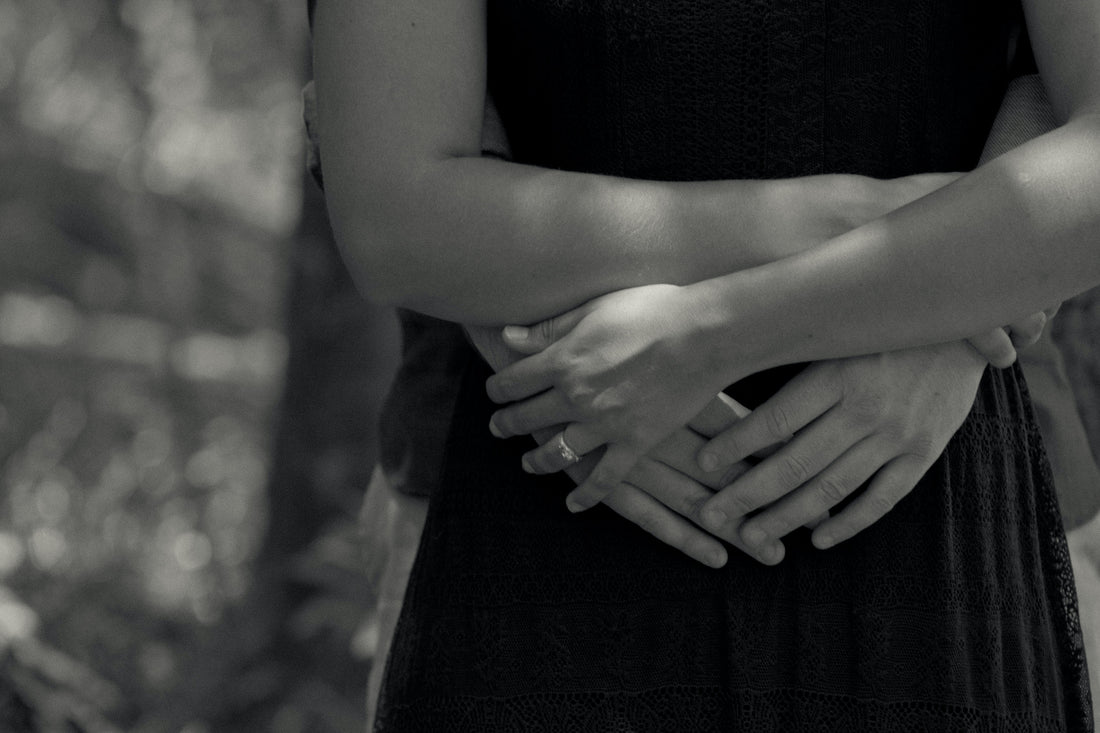
Picture this: you’re greeting your guests with hugs as they enter your home for a get-together, but the happy moment is ruined as your dog starts to bark nonstop. Now you have to worry about calming your dog down or removing them from the area rather than taking your guests’ coats or giving them the grand tour.
Nobody enjoys it when dogs won’t stop barking, and when your dog is barking at something as innocuous as a hug, it can be extremely confusing and frustrating. However, there are several common reasons your dog might feel the need to bark as you or a member of your family is hugging someone.
They’re Trying to Be Protective
Though some dog breeds are more known for their protective nature than others, most dogs possess certain guarding behaviors, especially regarding their “people.”
If your dog sees you hugging someone they’ve never met, it might start barking to scare them away from you and “save” you from perceived danger. Your dog’s bark is its genetic safeguard against potential threats, and they aren’t afraid to use it if necessary.
They’re Feeling Jealous
Often, when your dog is barking while you’re hugging someone, your pet is simply used to getting all of your attention and doesn’t like that someone else is taking you away from them—even for a moment. Dogs can be just as jealous as humans, and they aren’t afraid to make a big fuss just to get your attention back on them.
They Don’t Understand What’s Happening
Dogs bark for a wide variety of reasons, and confusion about a situation is just one of those reasons. Unfortunately, we can’t explain to our dogs with words that a situation is safe, so it may take your dog some time to understand that whatever’s happening isn’t dangerous. This kind of barking can be just as raucous and bothersome as protective barking.
They’re Guarding Resources
If your dog barks when you hug people, but it also barks or growls when people or other animals get too close to its food or toys, your dog may resource guard.
This behavior is often developed in puppyhood when dogs might experience food scarcity or have to compete with siblings for their meals. Many rescue dogs can also develop resource guarding behaviors in animal shelter environments.
How Can I Make My Dog Stop Barking?
Are you tired of trying to calm your dog down after simply greeting a friend or family member with a hug? Here are some of the most recommended ways to work on your dog’s excessive behavior regarding protectiveness, resource guarding, or attention barking.
Get a Bark Collar
No-shock bark collars are one of the most guaranteed ways to improve your dog’s excessive barking problem with consistent use. Bark collars don’t shock your dog or hurt them in any way, but rather mildly irritate your dog with a vibrating sensation when the collar senses a long, uninterrupted string of barks.
Your dog will learn that being quiet makes this sensation disappear. This is especially effective if you give your dog a treat each time they stop barking and successfully stay quiet despite whatever trigger is present.
Teach a “Quiet” Cue
Just like you teach your dog to sit or stay on command, you can teach your dog to be quiet when you say so. Choose a word you’d like to associate with the behavior, such as “quiet” or “hush.”
It’s also a good idea to have plenty of treats on hand the next time you know something will tempt your dog to bark. As soon as your dog stops barking on command, give them a lot of treats to teach them it pays to quiet down when you say the word.
Ignore the Behavior
In some cases, if you ignore your dog’s barking, they may learn that the behavior won’t get them what they want. This is especially true for dogs that are barking for attention. If their barking doesn’t get them any attention, they’ll soon realize there’s no reason to do it.

